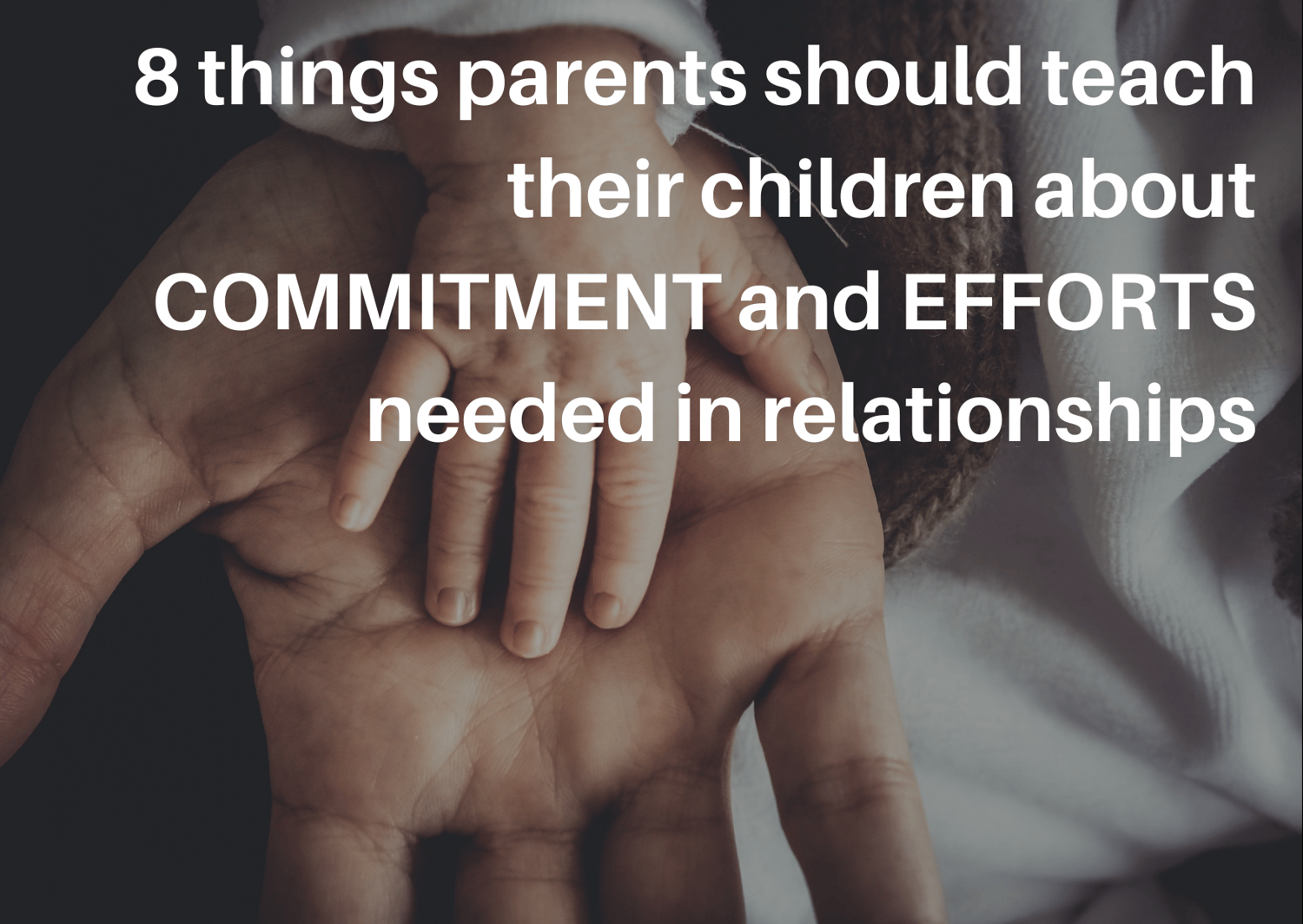In the month of March where the world celebrate International Women's Day, Cactus Foundation highlights it's unique and crucial initiative of *Key to Change - Raise Responsible Boys*
Empowering women is just one end of the spectrum to end gender based violence, another very important and ignored aspect of this fight is to raise males to step outside of the toxic standards set for them of looking at females as inferior to them.
Key to Change suggests 12 Action Points that can be put to use by families and parents to Raise Responsible Boys. This blog post addresses in detail, action point no. 9.
We all know that relationships take work, but sometimes it's hard to explain to young people exactly what that means. In particular, many boys can struggle with the idea of committing to a relationship or putting in effort to make it successful. And, let's be honest, popular culture often reinforces the idea that guys should be more interested in "one time flings" than building long-term relationships. But we know that's not true!
As parents, guardians, and caregivers, we all want to raise respectful and responsible young men who are equipped with the necessary skills to navigate relationships and handle life's challenges. However, with the prevalence of toxic masculinity and the societal pressures placed on men to be dominant and unemotional, teaching boys about commitment and effort in relationships can be a daunting task. In this blog post, we'll explore how to raise respectful men by teaching them about the importance of commitment and effort in relationships. Let's get started!
- Relationships require a JOINT EFFORT
As parents, it's important to teach your children that relationships take effort from both parties. Boys, in particular, need to understand that simply showing up for dates and expressing love is not enough. They should be willing to put in the same amount of effort as their partners to build a strong connection. It's not just about being physically present, but also emotionally involved. Both parties should be ready to work on their differences, communicate openly and honestly, and be supportive of each other's dreams and aspirations. A relationship is not a one-way street, and each partner has an important role to play in making it work. Remember that relationships take two people giving their all, and the outcome is worth the effort!
2) Your ACTIONS towards your kid matter
As a parent or a caregiver, how much love and time do you invest in your children? What is the quality of time you spend with them? Are you really accountable to your kids as a parent?
When it comes to teaching boys about commitment and effort in relationships, parents can have a huge impact by demonstrating these values through their own actions. As a parent, you have the responsibility to model healthy communication behaviors and set the right examples for your kids. This means being clear and direct when presenting expectations, setting boundaries and always listening with respect, even if you don't agree with your child. By showing up for your child's activities, listening attentively when they talk to you, and offering them emotional support when they need it, you can communicate what it takes to make a relationship work. Boys who see their parents prioritizing their family relationships above other obligations will be more likely to value commitment in their own relationships as they grow up. By demonstrating mutual respect, active listening, compromise, and compassion, you can show your sons what healthy relationships look like in action. Additionally, it's essential to provide ongoing support and encouragement as they navigate their own relationships, and to be there to offer guidance and advice when they need it.
3) Talk about LOYALTY, efforts, commitment and responsibility with your children
Loyalty does not just mean not sleeping with someone else while being committed to the other. Loyalty is also about facing the emerging challenges in a relationship head on, instead of overlooking them or distracting oneself by spending, sleeping around, gambling and so on. A loyal individual sees a difficult situation as the problem versus the team(people involved in a relationship) and not the problem versus me. Also, when we talk to others about loyalty, efforts, commitment, and responsibility, we should remind them not to ignore or run away from the challenges they face. By taking ownership of our growth and not shying away from challenges, one becomes more resilient and better equipped to handle anything that comes their way.
4) You and your partner can be a ROLE MODEL
The values of loyalty, commitment and effort get inculcated in your child when you maintain transparency. It means openly acknowledging the problems in your relationship but also demonstrating that you are putting in efforts to come up with a solution. Your child should be able to see your commitment through not only your communication with your spouse but also actions.
Being a parent is a huge responsibility and it's important to remember that you and your partner are the biggest role models in your child's life. When you make agreements, whether it's about chores or date nights, make sure you both stick to them no matter what. This sends a message to your child that you value your promises and take them seriously. If your partner has accomplished something, like getting a promotion at work, take the time to congratulate them and express how proud you are. This shows your child that it's important to support and celebrate the successes of those we care about. Another way to be a positive role model is by demonstrating how to handle disagreements in a healthy way. It's natural for partners to argue from time to time, but it's important to show your child that arguments can actually be healthy when both parties take turns listening and communicating respectfully with one another. This means avoiding name-calling and insults, and instead focusing on finding a solution that works for both of you.
5) Remind them to STEP OUT of their COMFORT ZONE
Hey parents! If you want to prepare your kids for the real world, it's essential to make them aware that they will have to get out of their comfort zone sometimes. One needs to put that little extra effort to understand that important person, to give them space, to know them better and to make them feel special. Remind them that although the idea of putting in effort itself is exhaustive, efforts in the right direction will give you the best fruits.
6) Tell them the importance of CONSISTENCY and COMMUNICATION
Whether it's in school, sports, or even relationships, consistency and clear or authentic communication can make a huge difference. It all starts with making a commitment to yourself and others. When you take the time to communicate openly and honestly, you can set clear expectations for yourself and others. This helps create consistency in actions and builds trust between people. When your children understand the value of consistent and open dialogue, they're more likely to strive for it in all their relationships. Children who grow up witnessing such traits in their parents are more likely to exhibit the same traits in their own relationships, setting them on a path towards successful partnerships.
7) Encourage them to not shy away from their EMOTIONAL SIDE
In today's society, the media often portrays masculinity as being stoic and emotionless. This can lead boys to shy away from showing affection, vulnerability, and sensitivity in their relationships. However, it's important for parents to encourage their kids to break this stereotype and embrace these traits. Boys need to understand that commitment is more than just making a promise to stay devoted; it involves showing affection, being vulnerable, and expressing sensitivity in order to create an emotionally secure relationship. It's okay to express your feelings and let your guard down around those you care about. By doing so, you'll strengthen your relationships and create a deeper sense of intimacy. So, let's encourage our boys to break free from societal norms and embrace their emotional side – it's what makes them truly strong and confident individuals.
8) Make them understand about the concept of RELATIONSHIP
One of the most important things a parent can teach their child as they grow up is the value of resolving issues and growing together in relationships. Whether it's between friends, colleagues, or romantic partners, learning how to communicate effectively, listen actively, and work through problems is crucial to building strong, long-lasting healthy connections with others. By helping your boys develop these skills early on, you can set them up for success in all areas of their lives. They'll be able to get along better with others, build stronger friendships and partnerships, and thrive both personally and professionally.
Boys and Men often shy away from understanding what it needs to make relationships work. This action point is a great way to introduce young boys to the facts about the responsibility of being in a relationship. There are many things out there to corrupt young minds about false notions in relationships. Watch the following video and share and spread the message RAISE RESPONSIBLE BOYS who will respect and treat women with dignity & empathy.
Link- https://youtu.be/YM3jrOG4y4s



Comments ()